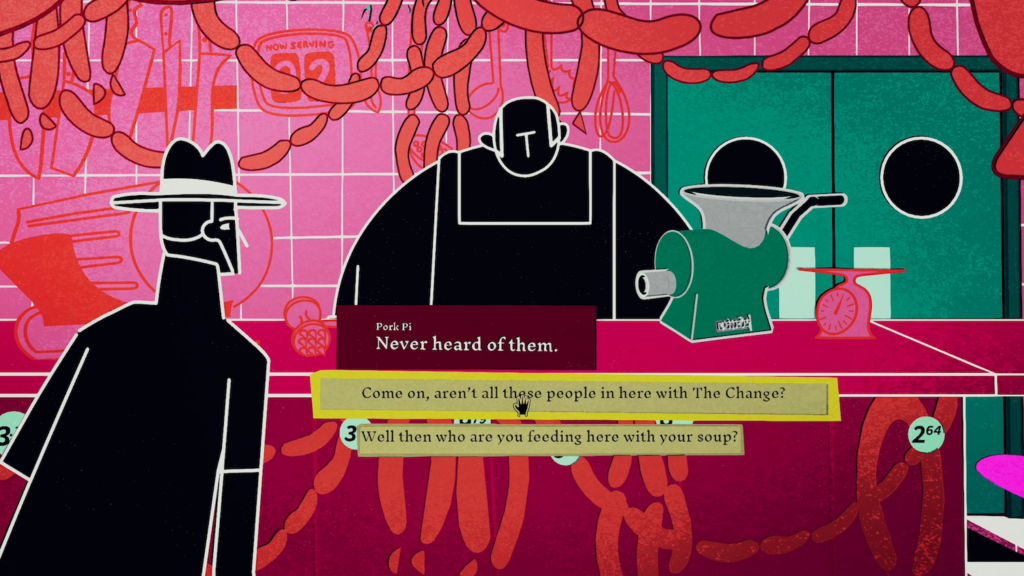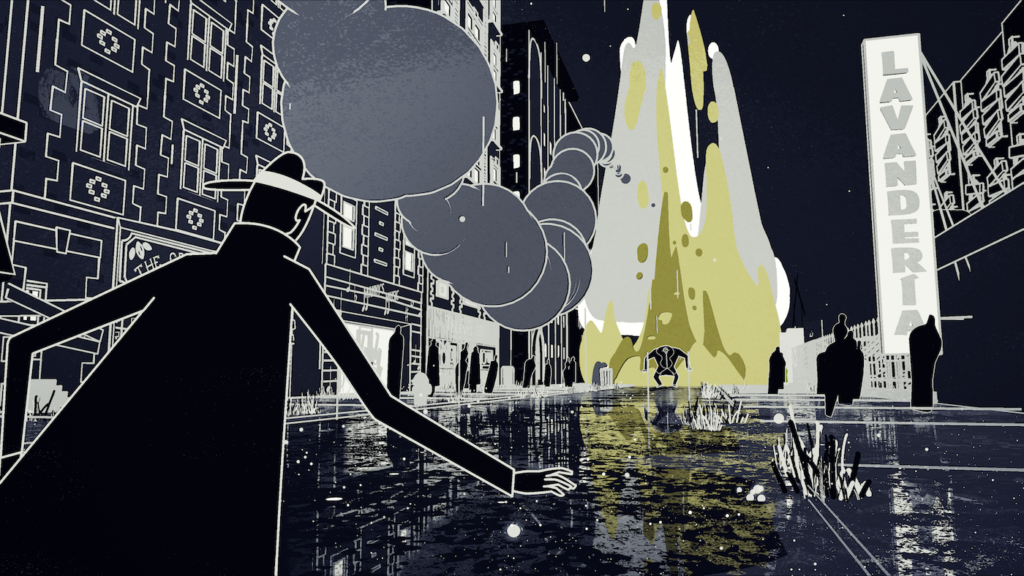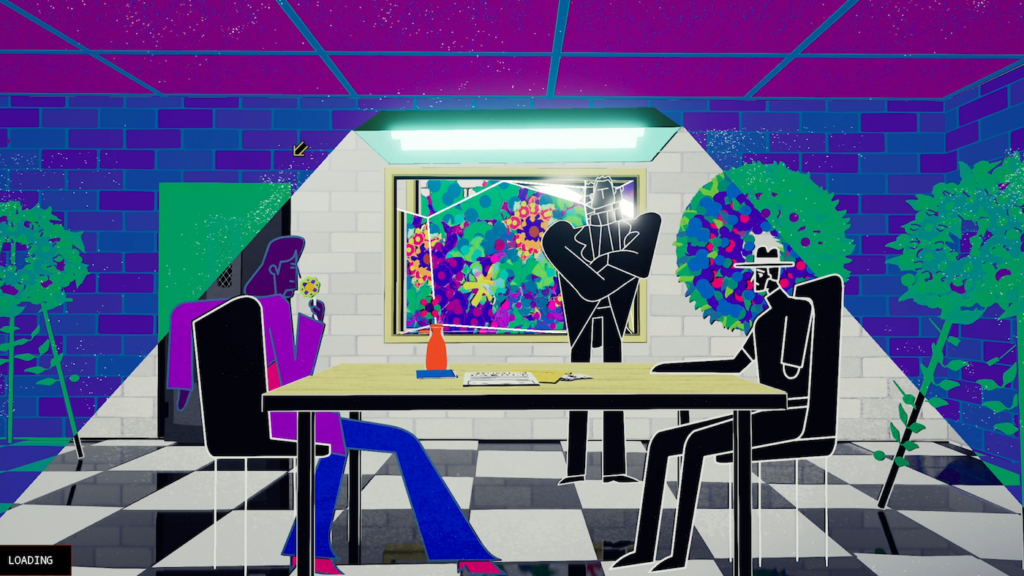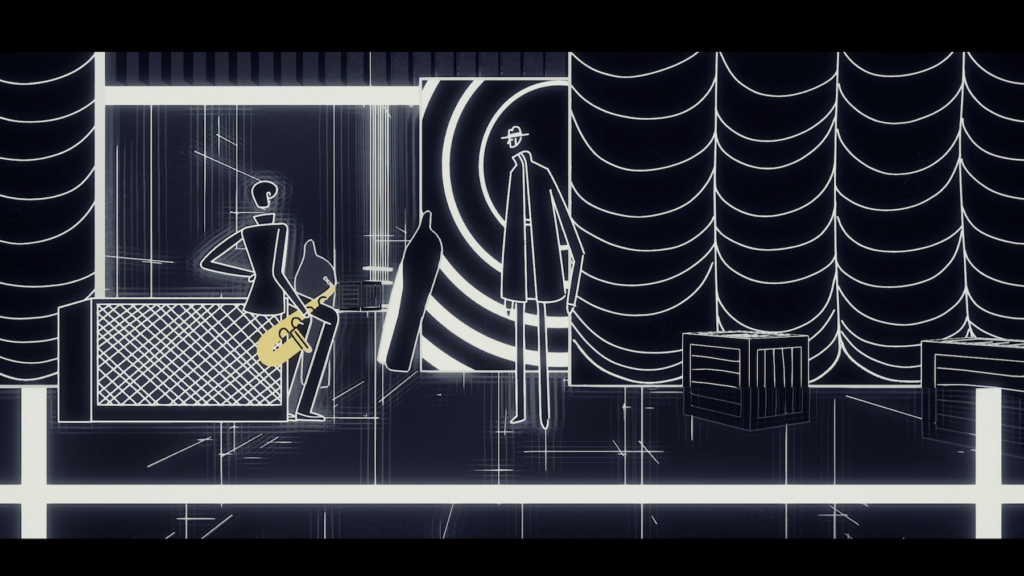Their first game, Genesis Noir, was already a moving work of art. Now, with the follow-up, Nirvana Noir, the New York-based indie studio Feral Cat Den is crafting audio-visual poetry in motion. Welcome to the monochromatic world of Black Rapture and the psychedelic explosion of colors that is Constant Testament.
The sheer confidence to steer clear of the beaten track and create something truly original comes from experience gained outside the world of video game development. “Our visual style comes from our background in motion graphics,” says Evan Anthony, Co-founder and Creative Lead at Feral Cat Den. “This field of visual art emphasizes abstraction and graphic design to compress storytelling into quick digestible and fun chunks.”
Previous to making their own indie games, the studio’s background was in advertising and product design. They created interactive installations, motion graphics animations, experiential web pages, mobile apps, and lots of other creative projects. This gave the studio a bit of an outsider perspective.
Cool soundtrack
“We take risks that other game studios might be smarter to avoid, and we have inspirations and skills that are a bit different than a lot of games,” explains Anthony. “ We seek to build long-form interactive storytelling that features the tactile interactions and transition heavy animation that we’re familiar with. While we’re currently working full time on Nirvana Noir, we still keep a foot in the world of installation art and motion graphics to remain inspired!”

At its core Nirvana Noir is an adventure game where players lead a watchmaker called No Man through a detective story. They will have to talk to a diverse set of characters and find clues in dialogues and intricate puzzles, and unravel a conspiracy that could bring the world to its end. All the action and drama unfolds to a cool soundtrack full of jazzy tunes by the London based music collective Skillbard. Development is paid for by a successful Kickstarter campaign and publisher Fellow Traveller.
Build games holistically
Although the debut game Genesis Noir was quite successful, the team at Feral Cat Den didn’t immediately start working on a sequel. “We actually developed four ideas, and pitched them to our friends and our publisher,” says Anthony. “It was hard to pick, but we found the characters of Genesis Noir telling us they had more story to tell. We quite enjoy being in that world, so Nirvana Noir seemed like a great way for us to hone those skills while also giving us new creative and technical challenges.”

“Our goal is to build our games holistically where music, interaction, art and writing all inform one another and iteratively improve throughout the development process. We often don’t know how a scene will work exactly, but by keeping it loose and having faith in the process, they often end up in a place that is much more interesting than what we originally could have conceived.”
Embrace constraints
The team at Feral Cat Den embraces constraints and uses them creatively. “Making games is a huge amount of work, so we’re always on the lookout for where we can creatively use repetition, abstraction, and the audience’s imagination,” Anthony notes. “Many of our art direction decisions let us simplify scenes by putting our characters in a quiet interstellar space, or by playing with the scale of props, or utilizing limited animation for our characters, so that we can focus our efforts on other bits. A happy byproduct is that these limitations often produce interesting results themselves!”

One of the consequences of having a small team is that everyone is heavily involved in every aspect of the game’s development. It also means that they have to be flexible, according to Anthony. “We’re a small team so everyone must wear different hats. We definitely cluster around roles and responsibilities, but we’re all flexible if the need arises. We enjoy being a small enough team that every morning we have a team meeting where we can give feedback and know what everyone else is doing that day.”
Intricate things
Reflecting on the development of Nirvana Noir, Anthony admits that it’s quite the challenge to develop a game free of bugs. “Games are such intricate things and there are so many small mistakes to make. Our first game, Genesis Noir, released with its fair share of bugs. We felt awful whenever we got a bug report and it was exhausting to fix them all. This time around we’re putting a lot more time and resources into playtesting and catching problems early.”

“My hope for Nirvana Noir is that people have a fun time!” he says. “That they are left with some deep questions to reflect on, and feel connected to everyone else who experienced the game.”
Nirvana Noir is ‘coming soon’, but you can already try out the demo.

